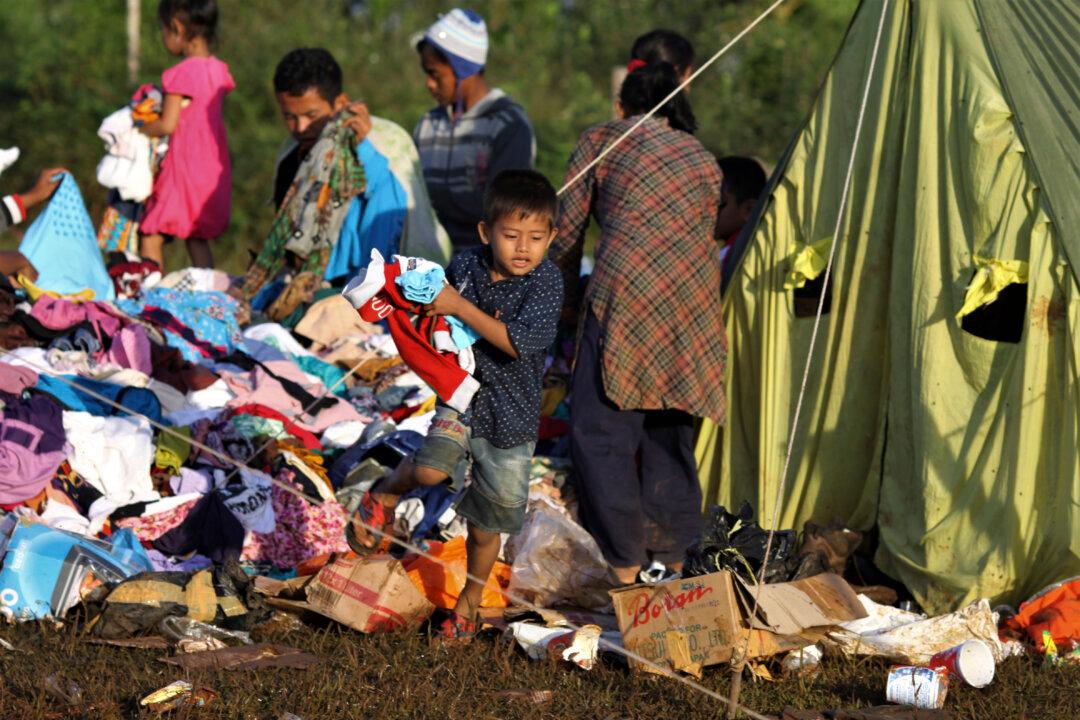JAKARTA, Indonesia—Mudslides and power blackouts hampered the search for people missing in massive floods in Indonesia’s capital, where more than 60 people have died and some of the tens of thousands of evacuees were living in damp, cramped emergency shelters.
More than a thousand soldiers and health workers sprayed disinfectant in hard-hit areas on Jan. 5 to fend off diseases that could spread in the floods. Monsoon rains and rising rivers submerged a dozen districts in the greater Jakarta area after extreme New Year’s Eve rains, causing landslides in hilly areas on the outskirts of the capital that buried scores of people.





